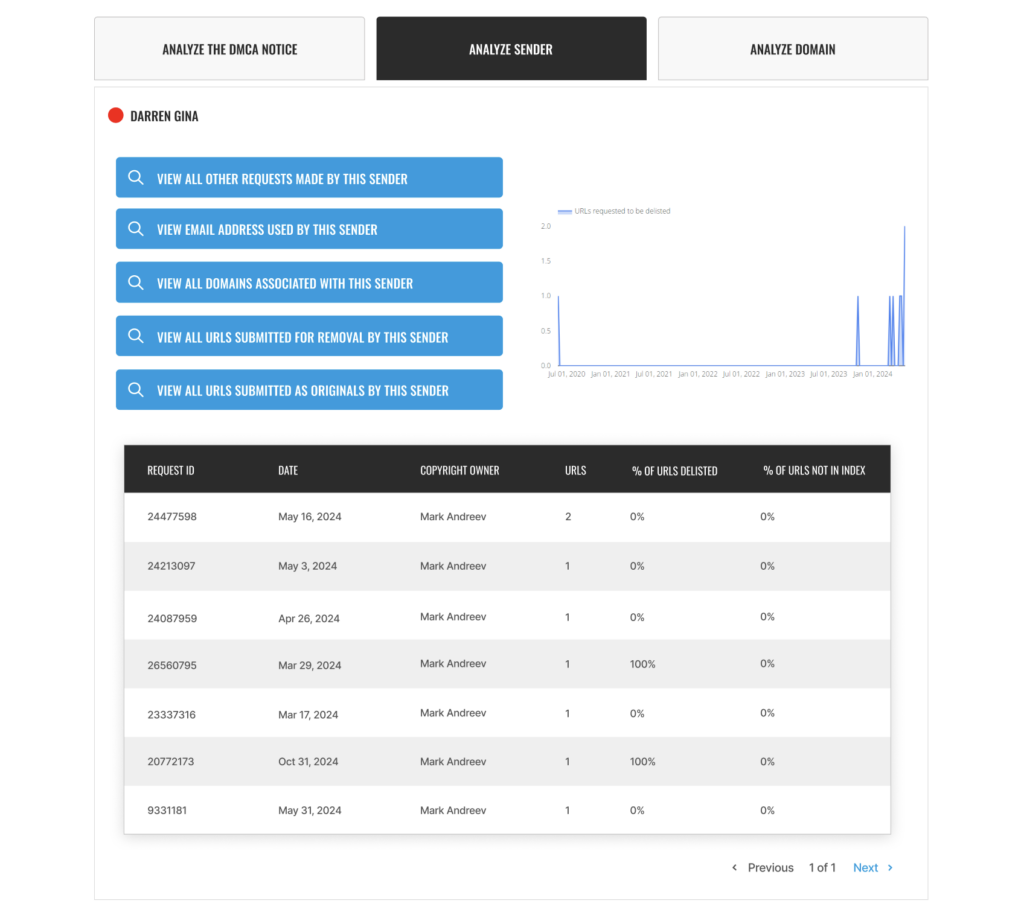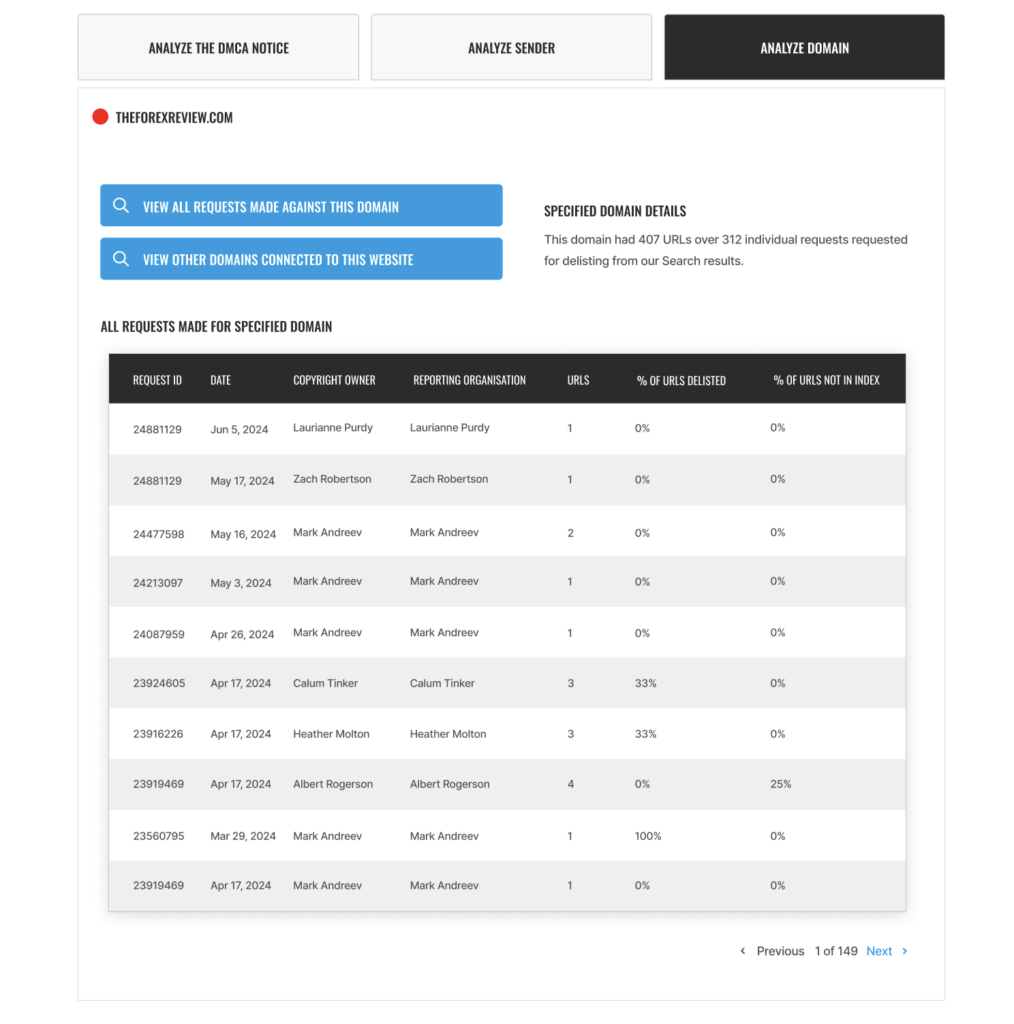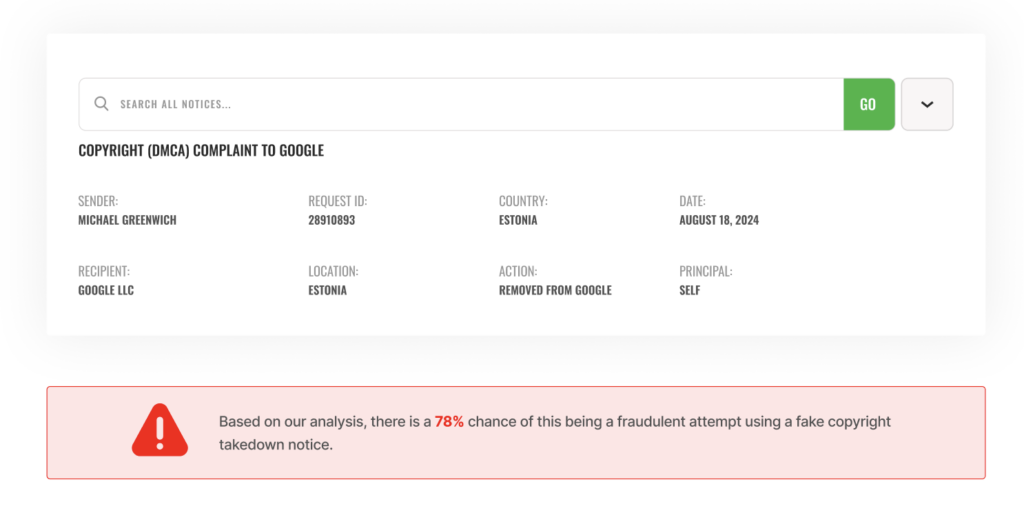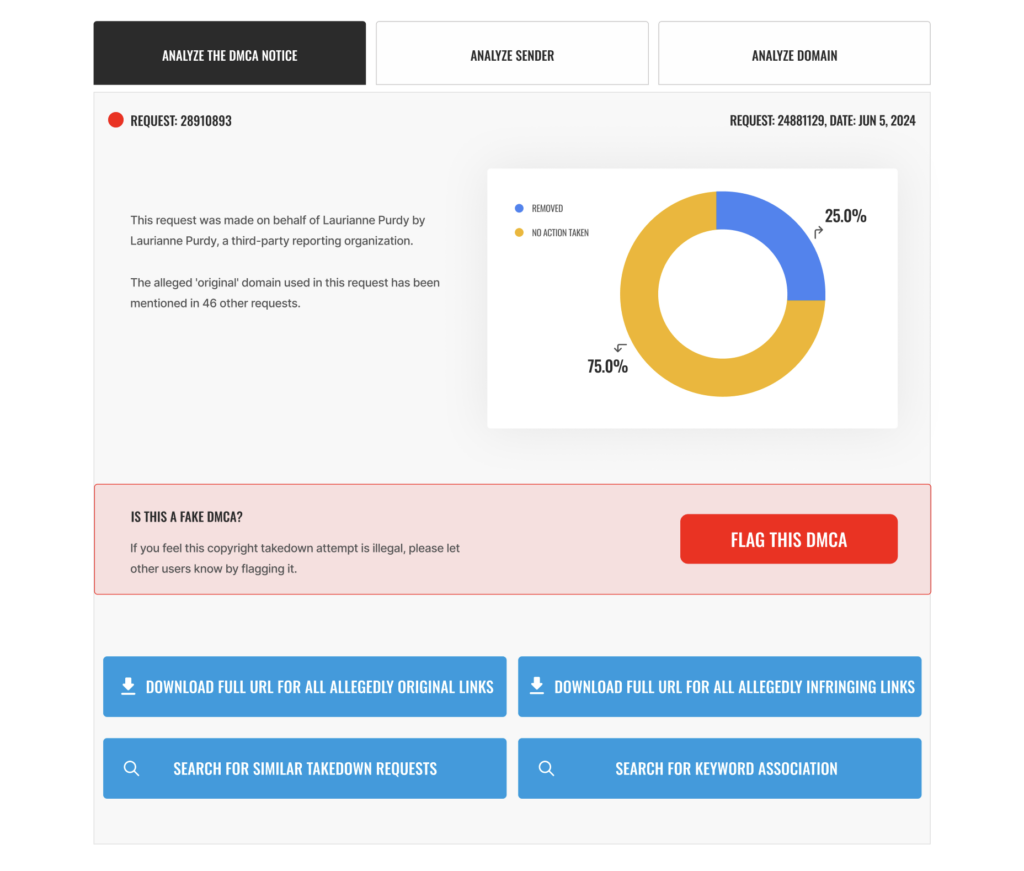What Happened?
XM Group, a well-known forex and CFD broker, has built a substantial client base globally, but its reputation has been marred by a number of controversies that the company allegedly seeks to conceal. Despite being regulated by Tier-1 authorities like ASIC and CySEC, several user complaints highlight troubling business practices.
Among the key allegations are claims of poor trade execution, particularly slippage, where trades are executed at worse prices than expected, often causing traders significant losses despite protective measures like stop-loss orders. Additionally, customers have voiced concerns about high spreads and hidden fees, making trading more costly compared to competitors.
There are also reports of unjustified account closures and delays in fund withdrawals, raising questions about the broker’s financial transparency and fairness. On review platforms like Trustpilot and ForexPeaceArmy, XM’s reputation is mixed, with numerous complaints about these practices. To mitigate damage, XM has been accused of flagging negative reviews or seeking their removal from public forums, thus censoring unfavorable opinions.

Despite these efforts, the broker’s mixed reviews remain, as customers continue to express dissatisfaction with its services, highlighting a deeper struggle to control the public narrative around its operations.

Analyzing the Fake Copyright Notice(s)
Our team collects and analyses fraudulent copyright takedown requests, legal complaints, and other efforts to remove critical information from the internet. Through our investigative reporting, we examine the prevalence and operation of an organized censorship industry, predominantly funded by criminal entities, oligarchs, and disreputable businesses or individuals. Our findings allow internet users to gain insight into these censorship schemes’ sources, methods, and underlying objectives.
List of Fake Copyright Notices for XM Group
| Number of Fake DMCA Notice(s) | 1 |
| Lumen Database Notice(s) | https://lumendatabase.org/notices/43947147 |
| Sender(s) | SynergyNet Technologies llc |
| Date(s) | Aug 20, 2024 |
| Fake Link(s) Used by Scammers | https://www.investing.com/brokers/reviews/xm-group/ |
| Original Link(s) Targeted | https://www.forexbrokers.com/reviews/xm |
Evidence and Screenshots

How do we investigate fake DMCA notices?
To accomplish this, we utilize the OSINT Tool provided by FakeDMCA.com and the Lumen API for Researchers, courtesy of the Lumen Database.
FakeDMCA.com is the work of an independent team of research students and cybersecurity professionals, developed under Project UnCensor. Their OSINT Tool, designed to uncover and analyze takedown notices, represents a significant step forward in combating these abusive practices. It has become a valuable resource, increasingly relied upon by journalists and law enforcement agencies across the United States.
Lumen, on the other hand, is an independent research initiative dedicated to studying takedown notices and other legal demands related to online content removal. The project, which operates under the Berkman Klein Center for Internet & Society at Harvard University, plays a crucial role in tracking and understanding the broader implications of such requests.
What was XM Group trying to hide?
XM Group is a well-established online forex and CFD (Contract for Difference) broker, offering access to over 1,000 financial instruments including forex, stocks, commodities, indices, and cryptocurrencies. Founded in 2009, XM Group operates under the regulation of multiple financial authorities, such as the Australian Securities and Investments Commission (ASIC) and the Cyprus Securities and Exchange Commission (CySEC), and is regarded as a trusted broker with a high trust score on platforms like ForexBrokers.com
XM Group provides a range of services, including flexible account types, educational resources for traders, and trading platforms like MetaTrader 4 and MetaTrader 5. They are known for offering competitive spreads, fast execution speeds, and good customer service
(ForexBrokers.com). However, despite its positive offerings, the company has faced significant criticism.
Adverse News, Complaints, and Allegations:
- Trade Execution Issues: XM Group has faced numerous allegations about poor trade execution, specifically related to slippage, where trades are executed at a price worse than expected. This issue has caused losses for traders despite using risk management tools like stop-loss orders. Customers frequently report these issues on platforms like Trustpilot and ForexPeaceArmy, where XM has garnered mixed reviews(AZ Forex Brokers).
- High Spreads and Hidden Costs: XM has been criticized for offering higher-than-average spreads, especially on its standard accounts. Customers often complain that the fees and spreads make it difficult to maintain profitable trades compared to other brokers, making XM a more expensive choice for traders(ForexBrokers.com).
- Fund Withholding and Account Closures: Some clients have accused XM of unjustified account closures and withholding funds. These incidents include long delays in processing withdrawals and limiting clients’ access to their funds without clear justification. Such actions have sparked frustration and suspicion, with users sharing these complaints on Quora and ForexPeaceArmy, where concerns about transparency and fairness have been raised(AZ Forex Brokers).
- Attempts to Censor Negative Reviews: XM Group has also been accused of censoring negative feedback by disputing or flagging unfavorable reviews on public platforms like Trustpilot. Some customers believe that the broker is using tactics to suppress damaging information and improve its public image, despite lingering customer dissatisfaction(AZ Forex Brokers).
Documents and Regulatory Scrutiny:
While XM is regulated by trusted entities, the broker operates in regions with varying regulatory standards. Some of its operations are carried out under Tier-4 jurisdictions, which are considered higher risk due to less stringent oversight(ForexBrokers.com). These operations raise concerns about transparency and customer protection in certain regions, especially in cases where clients have faced issues with trade execution and fund withdrawals.
In conclusion, while XM Group is recognized as a trusted broker by regulatory bodies, it faces several complaints and negative feedback, primarily concerning trade execution, hidden fees, and fund access issues. Despite efforts to maintain a positive image, these controversies have led to skepticism among parts of its user base. For more information, refer to XM Group’s detailed review on ForexBrokers.com(ForexBrokers.com).
Only XM Group benefits from this crime.

Since the fake copyright takedown notices were designed to remove negative content for XM Group from Google, we assume XM Group or someone associated with XM Group is behind this scam. It is often a fly-by-night Online Reputation agency working on behalf of XM Group. In this case, XM Group, at best, will be an “accomplice” or an “accessory” to the crime. The specific laws may vary depending on the jurisdiction. Still, the legal principle generally holds that if you actively participate in planning, encouraging, or facilitating a crime, you can be charged with it, even if you did not personally commit it.
How do we counteract this malpractice?
Once we ascertain the involvement of XM Group (or actors working on behalf of XM Group), we will inform XM Group of our findings via Electronic Mail.
Our preliminary assessment suggests that XM Group may have engaged a third-party reputation management agency or expert, which, either independently or under direct authorization from XM Group, initiated efforts to remove adverse online content, including potentially fraudulent DMCA takedown requests. We will extend an opportunity to XM Group to provide details regarding their communications with the agency or expert, as well as the identification of the individual(s) responsible for executing these false DMCA notices.
Failure to respond in a timely manner will necessitate a reassessment of our initial assumptions. In such an event, we will be compelled to take appropriate legal action to rectify the unlawful conduct and take the following steps –
- Inform Google about the fraud committed against them.
- Inform the victims of the fake DMCA about their websites.
- Inform relevant law enforcement agencies
- File counter-notices on Google to reinstate the ‘removed’ content
- Publish copies of the ‘removed’ content on our network of 50+ websites
By investigating the fake DMCA takedown attempts, we hope to shed light on the reputation management industry, revealing how XM Group and companies like it may use spurious copyright claims and fake legal notices to remove and obscure articles linking them to allegations of fraud, tax avoidance, corruption, and drug trafficking…
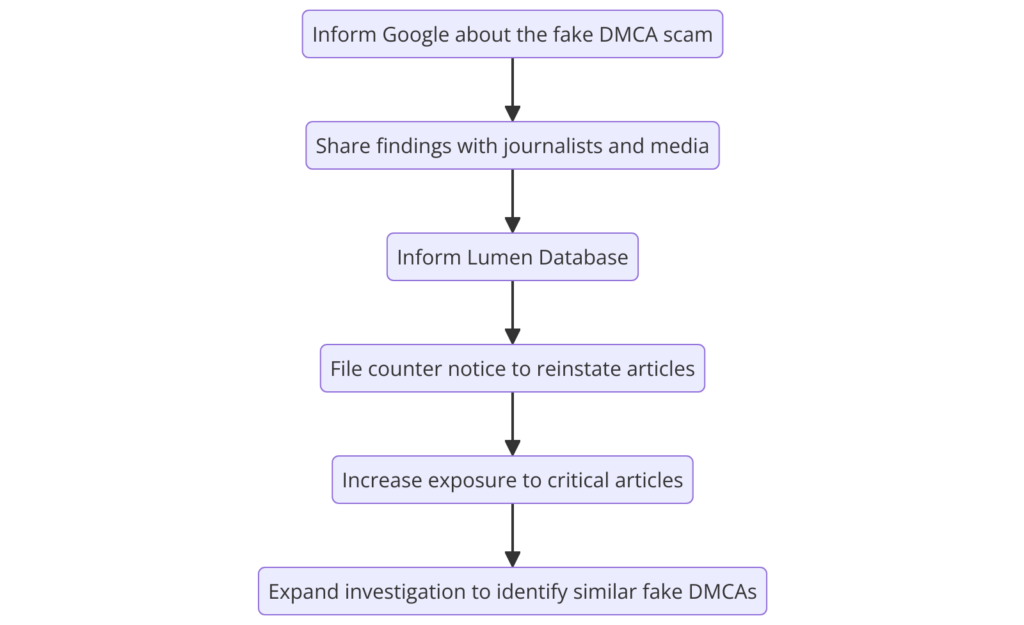
Since XM Group made such efforts to hide something online, it seems fit to ensure that this article and our original review of XM Group, including but not limited to user contributions, remain a permanent record for anyone interested in XM Group.
A case perfect for the Streisand effect…
Potential Consequences for XM Group
Under Florida Statute 831.01, the crime of Forgery is committed when a person falsifies, alters, counterfeits, or forges a document that carries “legal efficacy” with the intent to injure or defraud another person or entity.
Forging a document is considered a white-collar crime. It involves altering, changing, or modifying a document to deceive another person. It can also include passing along copies of documents that are known to be false. In many states in the US, falsifying a document is a crime punishable as a felony.

Additionally, under most laws, “fraud on the court” is where “a party has sentiently set in motion some unconscionable scheme calculated to interfere with the judicial system’s ability impartially to adjudicate a matter by improperly influencing the trier of fact or unfairly hampering the presentation of the opposing party’s claim or defense.” Cox v. Burke, 706 So. 2d 43, 46 (Fla. 5th DCA 1998) (quoting Aoude v. Mobil Oil Corp., 892 F.2d 1115, 1118 (1st Cir. 1989)).
Is XM Group Committing a Cyber Crime?
Yes, it seems so. XM Group used multiple approaches to remove unwanted material from review sites and Google’s search results. Thanks to protections allowing freedom of speech in the United States, there are very few legal ways to do this. XM Group could not eliminate negative reviews or search results that linked to them without a valid claim of defamation, copyright infringement, or some other clear breach of the law.
Faced with these limitations, some companies like XM Group have gone to extreme lengths to fraudulently claim copyright ownership over a negative review in the hopes of taking it down.
Fake DMCA notices have targeted articles highlighting the criminal activity of prominent people to hide their illegal behavior. These people, which include US, Russian, and Khazakstani politicians as well as members from elite circles including the mafia and those with massive financial power, are all connected – and alleged corruption ranging from child abuse to sexual harassment is exposed when exploring evidence found at these URLs. It appears there’s a disturbing level of influence being exerted here that needs further investigation before justice can be served. XM Group is certainly keeping interesting company here….

The DMCA takedown process requires that copyright owners submit a takedown notice to an ISP identifying the allegedly infringing content and declaring, under penalty of perjury, that they have a good faith belief that the content is infringing. The ISP must then promptly remove or disable access to the content. The alleged infringer can then submit a counter-notice, and if the copyright owner does not take legal action within 10 to 14 days, the ISP can restore the content.
Since these platforms are predominantly based in the U.S., the co





